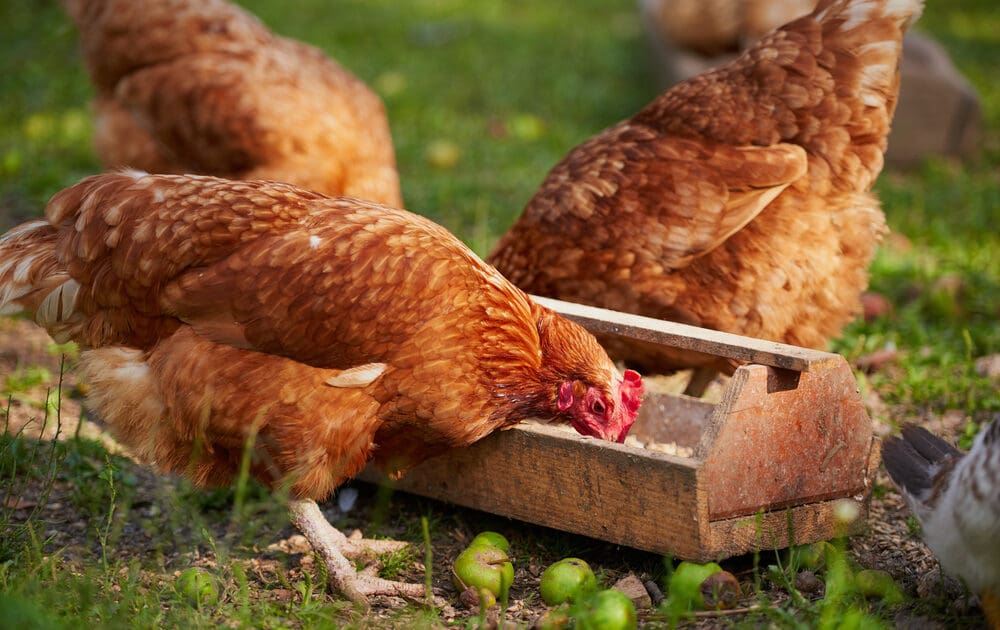There’s a Major Problem with Non-GMO Foods (and It’s Got Nothing to Do with GMO Labeling)

As the federal government prepares to pass the first national GMO labeling law, there’s one major thing that’s been neglected: whether they’re labeled or not, genetically modified animal-derived products are getting more difficult to avoid. And we’re not talking about things like AquaBounty’s frankenfish, where the animal itself is genetically modified — we’re talking about the dearth of non-GMO livestock feed in the U.S.
An overwhelming 90 percent of corn- and soy-based animal feed in the U.S. is genetically modified, as is much of the alfalfa, which means that even producers who want to produce meat, eggs, or dairy with no genetically modified ingredients are having a difficult time responding to the increasing demand for non-GMO foods.
Of course, that isn’t to say that producing non-GMO animal products is impossible. In fact, natural and organic meat producer Applegate Farms has recently launched Non-GMO Project Verified organic chicken nuggets. And this is only the beginning of a series of moves toward non-GMO foods for the company: Applegate is planning to seek out third-party non-GMO verification for every single one of its products in the next few years.
Applegate’s organic products, which are GMO-free by default, make up about a quarter of its product line. Its natural products, which are, according to the company’s own standards, raised without antibiotics or added growth hormones, given 100 percent vegetarian diets, and raised humanely, are currently being raised on a partially genetically modified diet, for want of non-GMO feed. This is something the company has vowed to change.
“We just think people have the right to know what’s in the products they eat,” Applegate President Steven J. Lykken told Bloomberg.
But here’s the thing: while that promise is laudable, it’s also going to be a tough one to keep in a country that doesn’t produce enough GMO-free livestock feed.
While many companies venture abroad to source non-GMO feed, however, Applegate wants to keep its sources domestic, essentially forcing nearly 700 of the company’s 2,500 farms to change their ways.
“Farmers and suppliers are already changing,” explains Applegate Communications Manager Le-La Cloutier. “When Applegate reached out to partners to talk about our non-GMO commitment, they were not surprised and very supportive. They understand the need and see where the market is going. As long as consumers continue to show demand and producers continue to listen, we believe it is an achievable goal.”
This is the perfect example of demand informing supply–and it reminds us a bit of what happened to the caged egg market earlier this year.
While there were some early adopters of cage-free eggs like Whole Foods and Chipotle, the beginning of 2016 saw a whopping number of food companies pledge to switch to cage-free eggs by mid-March. When Walmart made the commitment in April, the nation’s largest retailer, which sells about 11 billion eggs a year, essentially sealed the fate of the future of the egg market. Cage-free eggs are quickly becoming the norm in the mainstream market; non-GMO meat could soon follow.
Because of the work and money required to produce non-GMO feed, feed mills need to know that there are buyers at the other end, and that’s where Applegate comes in. By guaranteeing buyers, Applegate is helping to continue the evolution toward more non-GMO feed, and thus, more non-GMO foods.
“Applegate did the same thing with antibiotic-free animal agriculture over the last 20 plus years,” says Cloutier. “We started with a handful of farms in 1987, but by driving demand for meat raised without antibiotics, we now work with close to 2,500 farms that raise animals to our antibiotic-free and humane standards. We’re hoping our commitment to non-GMO will drive the same kind of change throughout the supply chain.”
When companies like Applegate take the initiative, it’s our job as consumers to put our money where our mouth is — literally — and continue to demand, and purchase, non-GMO foods.
Related on Organic Authority
3 Reasons GMO Foods Aren’t More Nutritious than Conventional
Non-GMO Labeling on Meat Gets the OK from the USDA
Got a Beef with Meat Labels? How to Demystify Their Meaning
Free-range chicken image via Shutterstock

